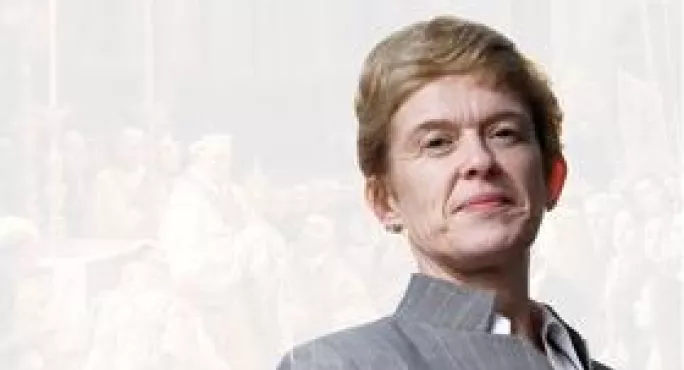‘Catholic heads should walk the talk’

Catholic headteachers should “walk the talk”, live their values and not just “stick them up on a wall”, Glasgow’s director of education has advised.
The challenge for Catholic schools in Glasgow was to retain their ethos as the populations they served became increasingly diverse, Maureen McKenna yesterday told the Catholic Headteachers’ Association of Scotland’s annual conference, whose theme was “As others see us”.
Over the past 12 years, Glasgow has spent more than pound;600 million improving its schools; as part of the programme, some schools had had to close and there was no longer one on every street corner, said Mrs McKenna.
Parents sometimes opted to send their children to Catholic schools simply because they were closer geographically than a non-denominational primary. At other times, the clear value system was attractive.
This did not, however, necessarily translate into a willingness to engage with “Catholic stuff”, as one parent had put it, or to attend church.
Mrs McKenna cited the case of a father who was in the Orange Order sending his child to a Catholic school because it was closer than his non- denominational primary. The parents insisted they did not want “any of that Catholic nonsense”, she recounted.
But by sending their child to a Catholic school, parents had made a deliberate choice and with that choice came a responsibility to accept the Catholic dimension of the school, she continued.
“We should not run away from the importance of providing a Catholic education. We need to be proud of the Gospel values that permeate every aspect of the life of a Catholic school. We should respect and honour others’ beliefs.”
Now more than ever there was a place for Catholic education and the values it promoted, she said.
“Catholic education can play an increasingly important role in our society - a society that is becoming increasingly fractured through the pressures of materialism and deprivation,” she added.
“Our children and young people, whether they are Catholic or not, need a framework of values to make sense of some of the challenges they will face.”
A strong Catholic ethos did not just happen - it needed to be worked at, she said.
CHAS president Isabelle Boyd also stressed the importance of Catholic values in today’s world.
“The global financial crisis was caused by greed - young people are bombarded with sexual images; the individual is king. Through our ethos, direct teaching and what permeates all our curriculum, we are saying to youngsters: `You are of value, and value and worth are found in relationships.’”
Interview, page 16
emma.seith@tess.co.uk
CHALLENGES TO OBSERVANCE - AND HOW GLASGOW RESPONDED
Parents of non-Catholic children in one denominational school refused to allow them to leave the school to walk to the parish church. Their view was that there were “more of us than them”.
Mass was moved to the school hall with the rule that everyone attended and respected the faith tradition of the school. All attended and after a few months, Mass was reinstated in the church, with everyone attending.
“I want my child to say Islamic prayers at lunchtime, supervised by school staff.”
Parent
“We want prayers to be an integral part of the life of all children, but apply the same principles as if the school was non-denominational,” said Maureen McKenna. “If no member of staff had volunteered, then there would be no supervision. A parent helper could volunteer, but parameters needed to be put in place to ensure that the saying of prayers at lunchtime did not intrude into children’s time for lunch, relaxation and fresh air. Children have rights, too.”
Keep reading for just £1 per month
You've reached your limit of free articles this month. Subscribe for £1 per month for three months and get:
- Unlimited access to all Tes magazine content
- Exclusive subscriber-only stories
- Award-winning email newsletters



